FROM the very beginning of the Republic of Indonesia’s existence, the issue of Palestine was a top priority for its first president, Ir. Soekarno. For Soekarno, Palestine was more than just a distant neighbour or a small piece of land in the Middle East; it was a symbol of the global struggle against colonialism.
“Colonialism must be abolished from this world,” states the first paragraph of the Preamble to the 1945 Indonesian Constitution. This sentence became the moral foundation for all of Indonesia’s foreign policy. Within this framework, Soekarno saw the suffering of the Palestinian people as another link in the long chain of colonialism that needed to be broken.
In the early 1950s, the world was deeply divided by the Cold War, with the United States and NATO on one side, and the Soviet Union leading the Warsaw Pact on the other. Newly independent nations in Asia and Africa were searching for a solid, common ground to fight for their rights amidst the dominance of the Western and Eastern blocs.
Soekarno acutely understood this situation. He knew that Indonesia couldn’t simply be a follower. This led to the birth of the “free and active” foreign policy doctrine: free to make its own decisions and active in fighting for justice. “Free and active” didn’t mean being neutral; it was precisely within this framework that the Palestinian issue found a special place.
Also Read: Four Prominent Palestinian Detainees Set for Release: Who Are They?
For Soekarno, Palestine was a clear example of a nation still trapped by modern colonialism and imperialism. In his speeches, he emphasized that the Palestinian struggle was not a religious issue but a universal human one. He viewed the conflict in Palestine as a continuation of Western imperialist policies aimed at maintaining dominance in the Middle East.
Palestine on the Asia-Africa Stage
A major turning point came during the Asia-Africa Conference (AAC) in Bandung on April 18, 1955. Soekarno delivered a powerful English-language speech that ignited the spirit of the delegates from 29 nations. He depicted a world divided and threatened by imperialism:
“Our unfortunate world is torn asunder, and it is a fact that the people of all lands live in fear…the wolves of war shall be let loose again from their chains,” Soekarno said, as quoted in a Tempo article titled “Soekarno’s Roaring Speech at the Opening of the AAC.”
Also Read: Children in Gaza and Future Generations Threatened by Genetic Damage
In his speech, Soekarno also stressed that colonialism wasn’t truly dead; it had simply changed its form. He warned of “neo-colonialism,” which wasn’t just military but also took the form of economic, political, and even intellectual control. He declared that Asia and Africa must unite to fight this new form of oppression.
The final communique of the Bandung Conference then underscored support for the rights of the Arab people in Palestine. This event elevated Palestine from a regional problem to a global issue concerning the dignity of all oppressed nations. The AAC became a crucial milestone, giving Palestine international legitimacy outside the frameworks of the UN and the Cold War.
A Timeless Rhetoric
Beyond international forums, Soekarno often articulated Indonesia’s stance through sharp, direct, and firm rhetoric. One of his most famous statements has become a timeless legacy of Indonesian diplomacy in the fight against all forms of colonialism:
Also Read: Palestinians in Gaza Remain Wary Amid Ceasefire Jubilation
“As long as the independence of the Palestinian people has not been handed over to the Palestinians, then as long as that, the Indonesian people will stand against the occupation of Israel.”
Soekarno said these words in 1962, in the midst of a volatile international political climate filled with issues of colonialism. The quote has been repeated by Indonesian leaders across different eras, including President Joko Widodo, who revisited it in his opening speech at the Organization of Islamic Cooperation (OIC) Extraordinary Summit on Palestine in 2016.
This rhetoric is more than just a memorable quote; it is a clear declaration of Indonesia’s consistent foreign policy, which stands firmly on the side of the Palestinian people.
Soekarno’s resolve wasn’t limited to the diplomatic stage. It also extended to international sports. When Indonesia hosted the 1962 Asian Games, Soekarno made a monumental decision: he refused to allow the Israeli contingent to participate.
Also Read: When the Sumud Flotilla Didn’t Reach Gaza
This decision came with severe consequences. Indonesia was sanctioned by the International Olympic Committee (IOC) and eventually barred from the 1964 Tokyo Olympics. But Soekarno didn’t budge. He fought back by ordering Indonesia to withdraw its membership from the IOC, which he saw as riddled with injustice and as an extension of colonial interests.
He boldly declared that sports could not be separated from political struggles. He then initiated the Games of the New Emerging Forces (Ganefo), a rival sports festival for newly independent nations that rejected Western hegemony. Ganefo, born in Jakarta, was deliberately created to challenge the IOC.
In a speech, Soekarno said:
“Let’s be honest… When they (the IOC) ostracize the People’s Republic of China, is that not politics? When they are unfriendly to the United Arab Republic, is that not politics? When they are unfriendly to North Korea, is that not politics? When they ostracize North Vietnam, is that not politics? I am just being honest. Sports are linked to politics. Indonesia offers to mix sports with politics, so let’s build Ganefo against Oldefo,” Soekarno stated, as quoted from the first edition of the Ganefo Bulletin (July 1963) by Tirto.
Also Read: Noble Effort in Caring Senior Citizen; Best Practices from Indonesia to the World
For Soekarno, solidarity with Palestine was non-negotiable, even if it meant paying the high price of international isolation. He chose to bear the consequences rather than betray his anti-colonial principles.
Soekarno’s Legacy
Soekarno did not live to see the 1988 declaration of Palestinian independence or Indonesia’s formal recognition of Palestine on November 16, 1988. However, the path he paved guided the next generation to follow the same course of solidarity. Two years after the recognition, the Palestinian Embassy was established in Jakarta, symbolizing the strong relationship between the two nations.
Even today, whenever the issue of Palestine arises, the Indonesian government almost always invokes Soekarno’s rhetorical legacy. In forums like the UN, OIC, and the Non-Aligned Movement, Indonesia consistently fights for the right to self-determination for the Palestinian people.
Also Read: Open Letter to President Prabowo Subianto: Never Recognize the Sovereignty of Zionist Israel
At the grassroots level, public solidarity also continues to strengthen. Various humanitarian actions, campaigns, and fundraising efforts for Palestine can be seen as the long echo of the solidarity policy Soekarno instilled from the very beginning of the republic.
In popular narratives, it’s often said that Palestine, through the Grand Mufti of Jerusalem, Sheikh Muhammad Amin al-Husaini was the first to declare support for Indonesia’s independence in 1944 via a Radio Berlin broadcast.
However, some historians clarify that this claim shouldn’t be considered a formal state recognition but is better viewed as a symbol of solidarity. Regardless, this story has become part of the historical narrative that strengthens the emotional connection between the Indonesian and Palestinian people.
Ultimately, Soekarno’s greatest contribution to Palestine wasn’t in formal steps like diplomatic recognition or material aid, but in his success in framing Palestine as part of a global anti-colonial agenda. By doing so, Soekarno managed to make the issue of Palestine a shared cause for the formerly colonized nations of Asia and Africa, rather than just a regional conflict. To this day, we continue to see a growing number of countries in Asia, Africa, and Latin America recognize Palestinian sovereignty.
Also Read: Measuring the Reality of the Israel-Palestine Two-State Solution
Today, when Palestinian flags wave in the streets of Indonesia during solidarity rallies, Soekarno’s spirit is still alive. His rhetoric, speeches, and actions remain the moral compass of this nation. Soekarno showed that true solidarity isn’t just about words; it’s about bold political decisions, even when the international community stands in opposition.
“As long as Palestine is not yet independent,” Soekarno declared, “Indonesia will continue to stand against Israeli occupation.” This iconic statement transcends time, becoming a promise that continues to be upheld, and proof that the struggle of another nation is an integral part of Indonesia’s own revolutionary mandate. [Nia]
Mi’raj News Agency (MINA)
Also Read: Tunisian Man Donates Boat to Global Sumud Flotilla, Citing “Gaza Is Worth More Than Anything”






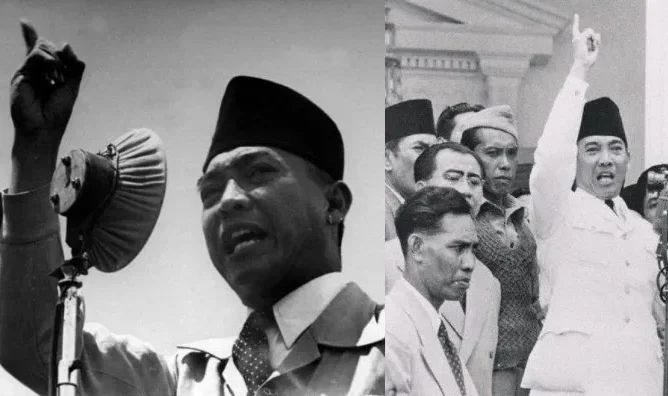



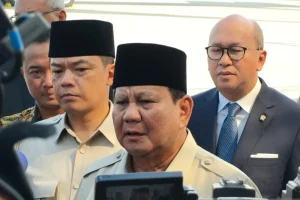
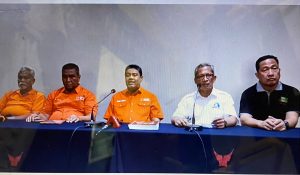
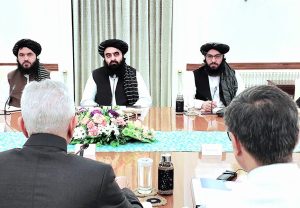


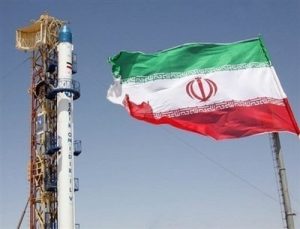
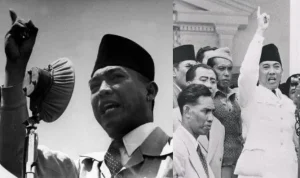
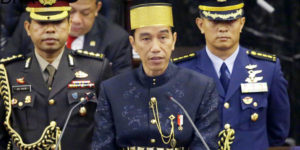




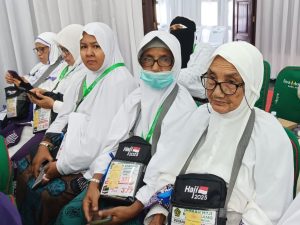


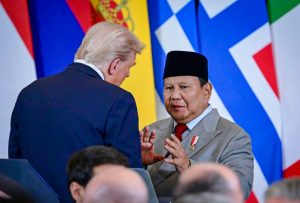






 Mina Indonesia
Mina Indonesia Mina Arabic
Mina Arabic